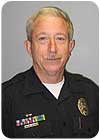
When the first alarm system was installed in Boston in 1853, public safety agencies bought into the idea that a security system could alert the cop on his beat that a problem was occurring in his area of responsibility — and the officer could apprehend the bad guy because the alarm went off.
But the cop is no longer on foot in his beat. He or she is in a patrol car covering an area many times larger than the foot patrol officer ever had to deal with. And the responsibilities have increased ten-fold to include drugs, vehicles pursuits, school shootings and terrorism.
So it is no wonder that a local fire or police chief is constantly looking for ways to maximize the positive impact his officers have on making the community safe. One of the areas the officer looks at is wasted time and unnecessary calls. For many police departments, the perception is that alarm calls are a waste of the officer’s time.
Leawood, Kan., is a small, wealthy bedroom community in the Kansas City, Mo., metropolitan area. During the period from 1990 through 2004, Leawood averaged 2,760 alarm calls a year and of those, an average of 13 were valid alarms. We have police officers on staff who have never been on a valid alarm call!
When an idea such as verified response is brought up, it is no wonder that many departments see this as a positive move; it gets us out of the alarm business right away. Overnight, public safety agencies have suddenly reduced the number of calls and have allowed the patrol and traffic divisions to concentrate on “real” issues of public safety.
But this is a political decision. Sheriffs and chiefs of police or fire do not make the law. That is up to the governing body with the advice of their staffs and attorneys. If a decision is made by the city, the local alarm and security firm will see an item on the meeting agenda tomorrow night doing away with police or fire response to unverified alarm calls. By that time, it is too late for the security industry to do much about it.
If, as a member of the alarm and security industry, you want to stop verified or modified response in your community, then you have to be proactive NOW. It’s really very simple; pick out your 10 worst false-alarm offenders, business or residential. Identify what is causing them to have false alarms and go fix it. Most of the solutions are simply re-training, fixing bad contacts or making sure that the user understands how to correctly use his security system.
Now comes the Strother Martin part. Go to your police chief, fire chief, alarm coordinator or patrol division commander and tell them what you have done. You have changed from being an invisible “enemy” of public safety into a visible and active ally in the fight against the real enemy of both the security industry and public safety, which is the “alarm abuser.” Next month, pick another 10 users/abusers and correct their problems.
We are very lucky in the Kansas City metro area that the Kansas City Burglar and Fire Alarm Association works with us in reducing false alarms. Through monthly meetings and constant telephone communication, we can identify the alarm abusers and change them into responsible alarm system users. In 2005, Leawood had its lowest number of alarm calls since 1986. This has been beneficial to the police and fire departments, the security industry and the 76.68 percent of our alarm users who had no false alarms during the year. An agreeable solution can be found.
Verified response is an option many cities consider and some have adopted. Does it really serve the public well? I think the jury is still out on that political question. But I am sure from Leawood’s experience that the rash of false alarms can be stopped with an effective alarm reduction program that has public safety and the security industry working together against the alarm abusers that cost us both time and money.